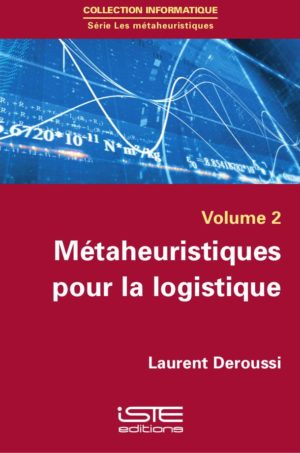
Logistics has been progressively evolving in the industrial world ever since its emergence during the 19th Century. Today, it constitutes a means of pressure essential for the competitiveness of companies. In three parts, this book describes the tools and techniques necessary to overcome classical combinatorial problems faced when designing a logistics network or driving a […]
Logistics has been progressively evolving in the industrial world ever since its emergence during the 19th Century. Today, it constitutes a means of pressure essential for the competitiveness of companies.
In three parts, this book describes the tools and techniques necessary to overcome classical combinatorial problems faced when designing a logistics network or driving a supply chain. In the first part, the author lays the foundations for logistic problems and for metaheuristics: a family of powerful optimization methods. The second part presents some advanced notions. It is shown how the conception of sophisticated mechanisms or specific problem knowledges can improve the efficiency of the metaheuristics. The last part concerns the current trends in supply chain management. Hybrid metaheuristics are presented as promising optimization tools for tackling the new challenging integrated problems that appears in this area.
1. Introductory Problems.
2. A Review of Logistic Problems.
3. An Introduction to Metaheuristics.
4. A First Implementation of Metaheuristics.
5. The Traveling Salesman Problem.
6.The Flow-Shop Problem.
7. Some Elements for Other Logistic Problems.
8. Supply Chain Management.
9. Hybridization and Coupling Using Metaheuristics.
10. Flexible Manufacturing Systems.
11. Synchronization Problems Based on Vehicle Routings.
12. Solution to Problems.

